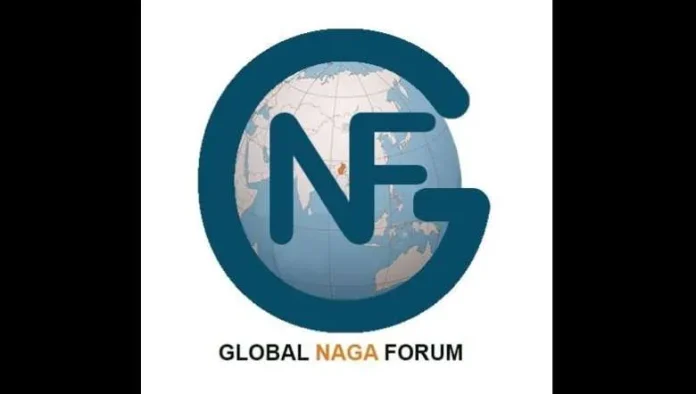On behalf of the Global Naga Forum, I greet you all on this historic day.
Our vision for Nagas in GNF is simple but profound: Nagas were and are a people with contiguous ancestral lands. Nagas belong together. We go way back to times before outsiders came and drew arbitrary colonial maps in our lands and imposed neocolonial administrative borders to divide us and rule over us. Because of this colonial and neocolonial history, some Nagas have lost their sense of who they are. So, they are misleading our people into believing that Nagas are incapable of taking care of ourselves: that Nagas cannot govern ourselves; that we don’t deserve to manage our beautiful, rich lands in ways that can benefit all of our people. Now, Nagas must confront this lie for what it is – a dangerous lie.
Today we gather to remember that on the 14th of August, 1947, before India claimed its own independence, the Naga people declared to the world that: We are a distinct people, with our own land, our own history, and our own right to decide our future and live freely as before. We are here to declare that Nagas are perfectly capable of governing ourselves, taking care of one another, and our lands.
Seventy-eight years have passed since that bold declaration in 1947. Our lands have seen many changes. Roads have been laid where once there were only footpaths. Villages have grown into towns and towns into congested, sprawling hubs. Generations have been born, have lived, and passed on. Yet one truth remains unshaken, the natural truth of who Nagas are — a people with a shared “identity ecosystem”, with rich geography and cultures, and a modern political history.
Our modern history has left deep lacerations and wounds in our lands and psyches.
Lines were drawn across our ancestral homeland, lines that cut across hills and rivers, villages and valleys. They gave them names like “state boundaries” and
“international borders.” These lines placed some of us in the present state of Nagaland, some in Manipur, some in Arunachal Pradesh, some in Assam, and many of our brothers and sisters across the Indo-Myanmar frontier.
These borders were not drawn to unite, they were drawn to divide. To make us think that because we live under different administrations, we are somehow different people. But my friends, the truth is older than these lines. Our identity is deeper than any map. We are one people. A people with One history, One destiny.
Our gathering today is more than an act of remembrance; it is a statement of unity.
We must never forget: unity does not mean uniformity. We are a people of many tribes, many languages, and many traditions. This diversity is our beauty, but our survival depends on our solidarity. If we allow tribalism, regionalism, or political rivalry to define us, the dream of our heroic leaders and forefathers will wither. But if we choose to stand together, our future will be stronger than any challenge we face.
So today, let us make three pledges:
First — that we will see each other as Nagas before tribe, region, or political affiliation.
Second – that we will reach across every divide, state lines, national borders, and political walls to strengthen our ties as one people.
Third — that we will pass on to our children not only the memory of 1947, but the living habit of unity in our everyday lives.
Brothers and sisters, seventy-eight years is a long journey. Many nations have risen and fallen in less time. And yet, here we are, still standing, still believing, still pressing forward. This is not because our path has been easy. It is because the Naga spirit has never surrendered. Naga peoplehood was the dream of our elders, insured by the sacrifices of our patriots, and it is the future of every Naga child.
As we leave this gathering, let us carry in our hearts the conviction that no border drawn by human hands can divide what God and history have made one. The world has seen our endurance, now let the world see our unity.
May God bless our land and our people. KUKNALIM.
Chuba Ozukum
Convenor
Global Naga Forum

